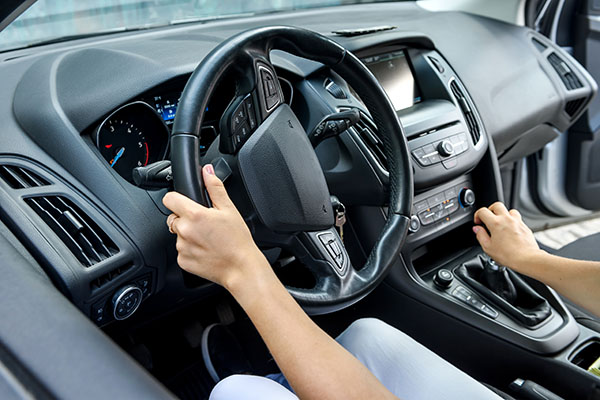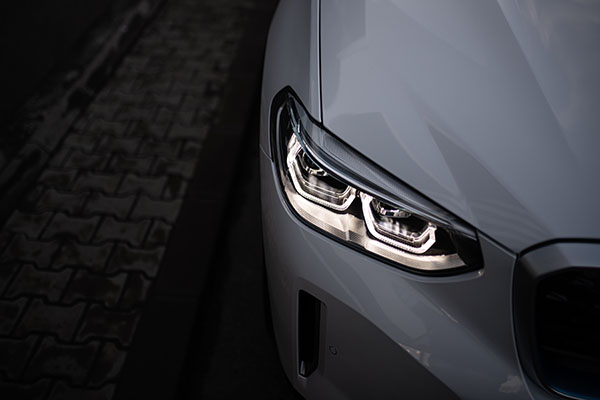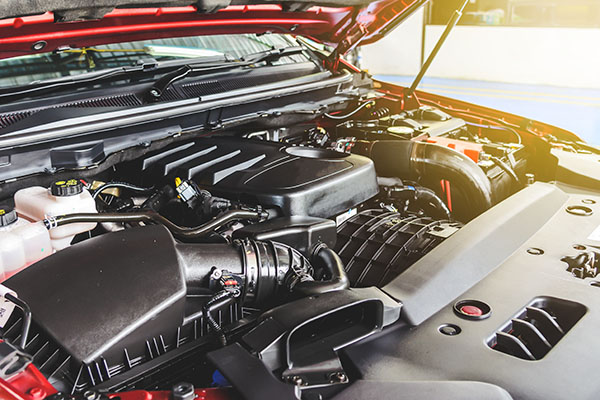Posted on 8/31/2023

You're cruising down the road, the wind in your hair, and your favorite tunes on the radio. Suddenly, you notice that your steering wheel has become resistant, requiring a big effort to make even the slightest turn. What's going on? It could be a malfunctioning power steering system, and the consequences of ignoring this issue can be more than just inconvenient – they can be downright dangerous. What is a Power Steering System? Before we delve into the potential dangers, let's understand what a power steering system is. In a nutshell, this automotive marvel assists drivers in steering their vehicles by reducing the effort needed to turn the wheels. It's especially handy when maneuvering at slow speeds or navigating tight spaces. Most modern vehicles employ either hydraulic or electric power steering systems. Driving With a Malfunctioning Power Steering System: A Risky Proposition Now, let's address the elephant in the room ... read more
Posted on 7/30/2023

The automotive industry is filled with an array of acronyms that can sometimes confuse even the most seasoned car enthusiasts. Understanding these acronyms is crucial for making informed decisions about vehicle models and features. We'll take a look at some of the most common vehicle acronyms, including TDI, TFSI, HEMI, AWD, FWD, RWD, and DOHC, shedding light on their meanings and significance. TDI - Turbocharged Direct Injection TDI stands for Turbocharged Direct Injection, a technology used in diesel engines. It combines turbocharging, which forces more air into the engine for improved combustion, and direct fuel injection, which delivers fuel directly into the combustion chamber. TDI engines are known for their efficiency, torque output, and reduced emissions. Example: VW Golf 8 2.0L TDI TFSI - Turbo Fuel Stratified Injection TFSI stands for Turbo Fuel Stratified Injection, a technology used in gasoline engines. It combines ... read more
Posted on 6/30/2023

As electric vehicles (EVs) gain traction on the roads, there's no denying that they are transforming the automotive landscape. From environmental benefits to technological advancements, EVs are changing the way we think about transportation. But have you ever wondered about the impact of electric vehicles on the auto repair industry? From shifting skill sets to evolving infrastructure, let's plug in and uncover the "electrifying" impact on the industry. Simplified Powertrain One of the most significant impacts of electric vehicles on the auto repair industry is the simplification of the powertrain. Unlike traditional internal combustion engines with complex systems, EVs have fewer moving parts and require less maintenance. With no oil changes, spark plugs, or timing belts to worry about, the routine maintenance needs of EVs are simpler. This shift means that technicians will need to adapt their skillsets to specialize in e ... read more
Posted on 5/31/2023

When it comes to road trips, Virginia offers a wealth of captivating destinations that are sure to delight travelers seeking history, natural beauty, and a touch of Southern charm. From picturesque coastal towns to rolling mountains and historic landmarks, the Old Dominion has something to offer everyone. If you're planning a road trip through Virginia, here are a few must-visit destinations to include on your itinerary: 1. Williamsburg Step back in time and immerse yourself in colonial America at Historic Williamsburg. This living history museum transports visitors to the 18th century, where costumed interpreters reenact daily life in the Revolutionary era. Explore the historic buildings, stroll through the beautifully restored streets, and visit the world-renowned Colonial Williamsburg Foundation. Don't forget to catch a live reenactment or take a carriage ride for an authentic experience. 2. Shenandoah National Park For nature enthusiast ... read more
Posted on 4/30/2023

Slow acceleration, delayed gear shifts, and other bothersome problems can arise if some of your vehicle's vital components are mistreated. In this blog, we will look at a couple of important things that can result in a noticeable performance decrease. Keep in mind that even the smallest issues, like a bad sensor, can result in a lot of problems. Dirty Air Filters Air filters are commonly overlooked as an unimportant part of your car. Well, this could not be more wrong. All of the air that goes into your engine passes through the filter. This means that if it is clogged, your engine has less air to work with, resulting in a big performance decrease. Stuck Brakes When you press the brake pedal, the brake pads are compressed by pistons. These exact pistons can get stuck and cause our car to go slower while also making the engine work harder. Sometimes this can be fixed by simply cleaning them, but a replacement is the best way to go. Tran ... read more